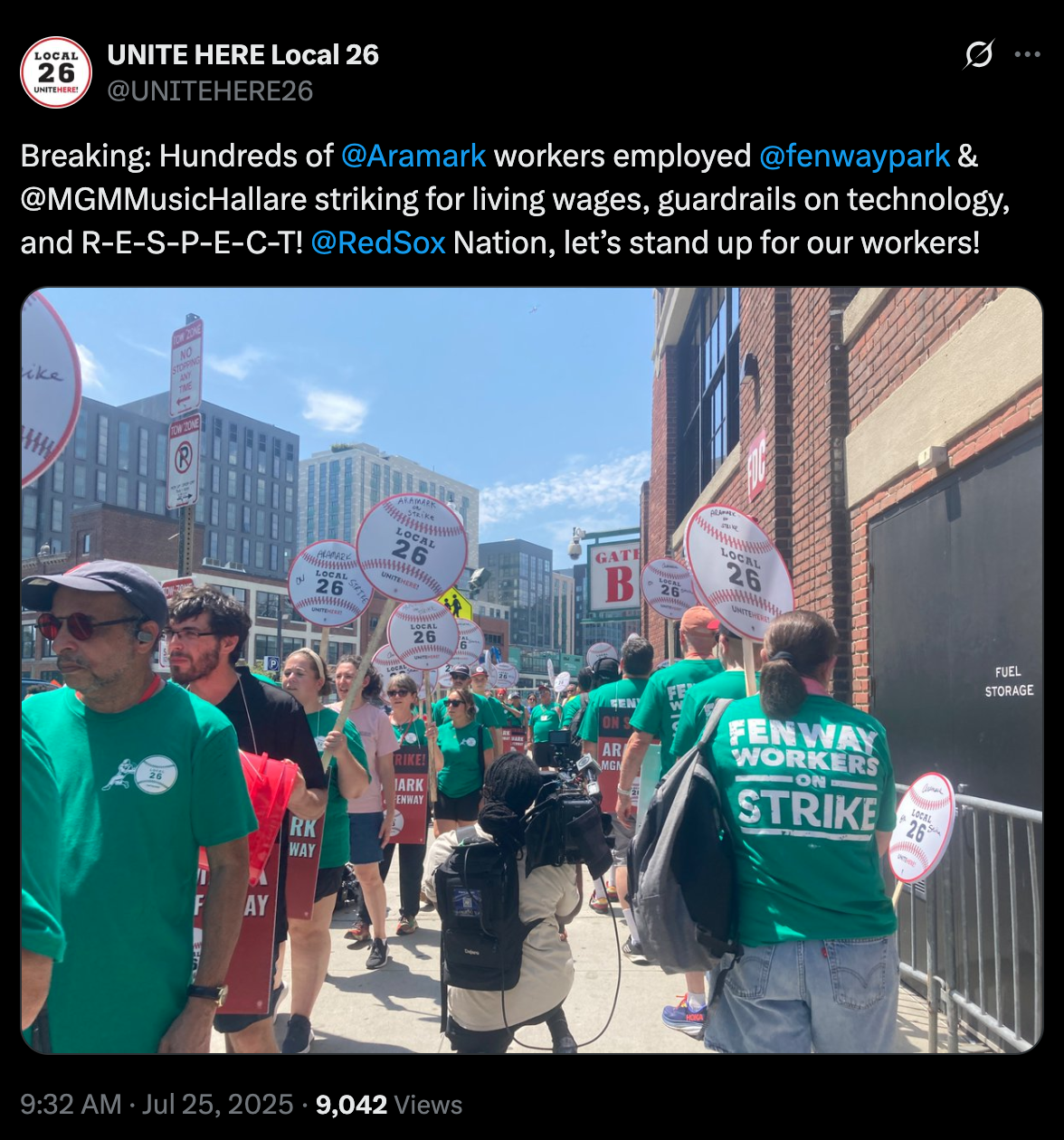Fenway Park Food Workers Strike For The First Time In 113 Years
Fair wages have been a big topic of discussion over the last few years. From DoorDash having to pay millions after withholding tips from delivery workers to Costco raising employee wages to $30 per hour, the employer/employee relationship in America is as contentious as ever.
Aramark food workers at Fenway Park have now joined the fray for what people say is the first union walk-out in its 113-year history. On July 25, hundreds of workers protested outside of the ballpark ahead of the Boston Red Sox’s game against the Los Angeles Dodgers, demanding “living wages and guardrails on technology.”
The Aramark workers encouraged fans to boycott the concession stands specifically—not tickets to home games. They chose to protest after a proposal for a minimum pay increase, submitted to the union the previous day, was rejected.
“Aramark has implemented its contingency staffing plans, and fans can expect a full and uninterrupted ballpark experience this weekend, including access to all food, beverage, and hospitality services throughout Fenway Park,” the team said in response to the strike.
Proponents for the pay increase, however, aren’t as easy-going about the ballpark experience continuing as is, at least not for those who operate the concessions.
According to The Associated Press, a 19-year Fenway Park beer vendor named Maggie McCue, who continues a business that her mother began nearly two decades ago, said, “They have more money than they need. We are Fenway. Fenway is us. Some people have been here 40-something years and they’re not even backing us up. Shame on them. I never thought that at 70 years old I would be on strike, but here we are.”
U.S. Sen. Bernie Sanders has come out in support of the Fenway workers as well, posting on social media, “Fenway Park is an iconic American institution, and it’s the workers there that make every Red Sox game special. The team is extremely profitable. They should treat their employees with respect, pay them decent wages and negotiate a fair contract with the union.”
























